

Developing fisheries management capacity for Timor-Leste and NT
March 9, 2023
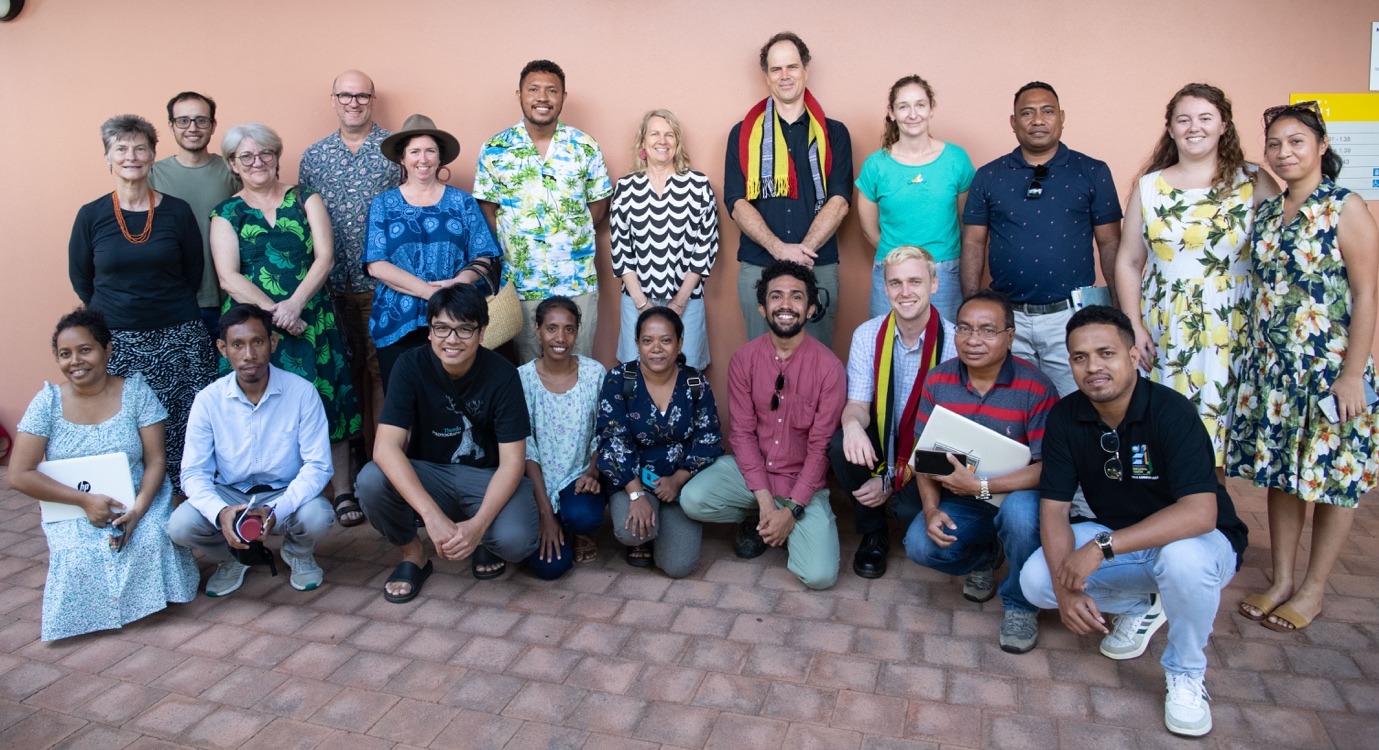
Support from the Crawford Fund’s NT Committee enabled eight Timorese marine management practitioners to visit Darwin to participate in an intensive program of skill development and relationship building activities with numerous researchers and other relevant stakeholders in Darwin. Training topics included First Nations community governance, qualitative research skills, inclusive and sustainable fisheries management, nature-based livelihoods, and conservation. The participants also shared their innovative approach to community-based natural resource management with Australian researchers and interested stakeholders at a seminar held at CDU. A follow-up online session encouraged knowledge dissemination and use of the program material by participants in their work. Blue Ventures Timor-Leste (BVTL), an international non-governmental organisation which works with fishing communities to manage fisheries and other marine resources, advocate for fisher rights, and to cultivate sustainable livelihoods is involved in an ongoing research collaboration with Jenny House from the Research Institute for the Environment and Livelihoods at Charles Darwin University (CDU), as part of the PhD project, “Community-based fisheries management through a gender lens: examining gendered participation in fisheries management and monitoring in Timor-Leste”. The collaboration identified the need for this group training. During the training, Jenny provided some great photos for our Instagram account and she has reported that Blue Ventures staff also posted about the activities in Tetum and English on their social media.
Below is a report posted by CDU on the training.
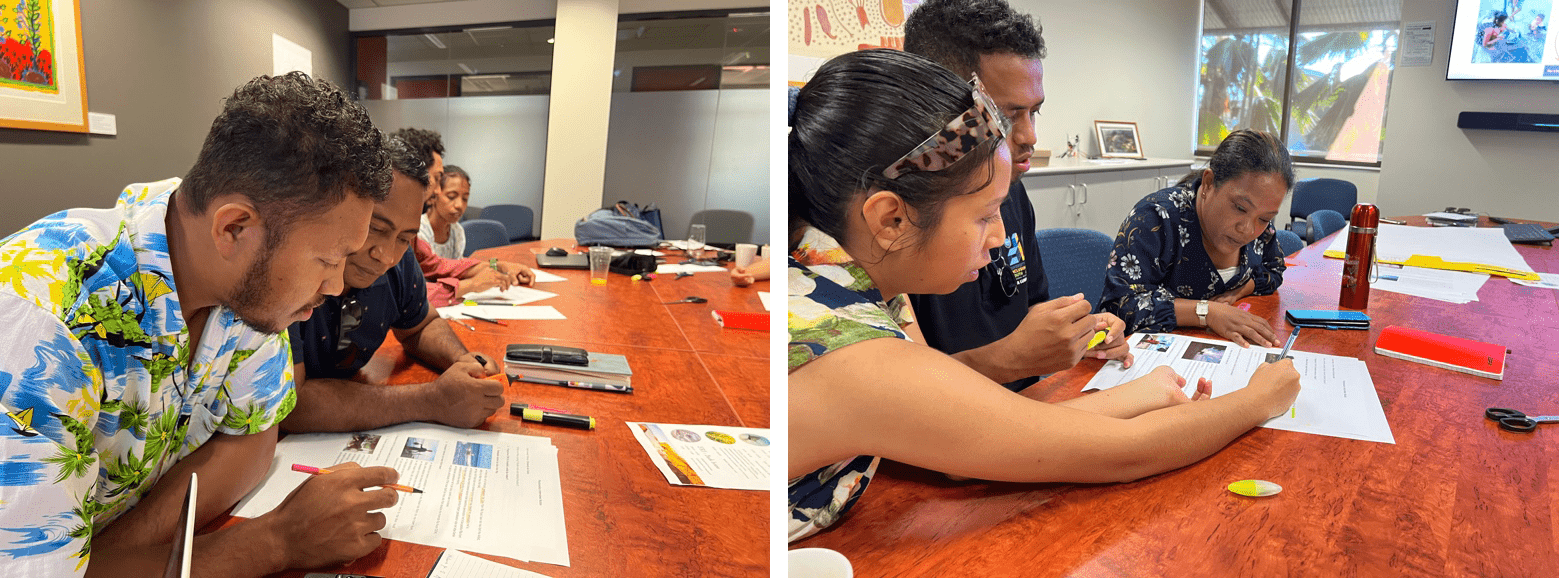
A knowledge exchange hosted recently between Charles Darwin University (CDU) and Blue Ventures Timor-Leste fisheries management experts has examined how government and community-based fisheries managers collect and use data for decision making among other issues.
Government-led fisheries management has a top-down decision-making process while, while community-led fisheries management has more bottom-up influence on decision making.
CDU PhD candidate Jenny House, from the Research Institute for Environment and Livelihoods said the exchange highlighted one challenge that fisheries managers face in many parts of the world.
“Government-led fisheries are often focused too heavily on management by the numbers,” Ms House said.
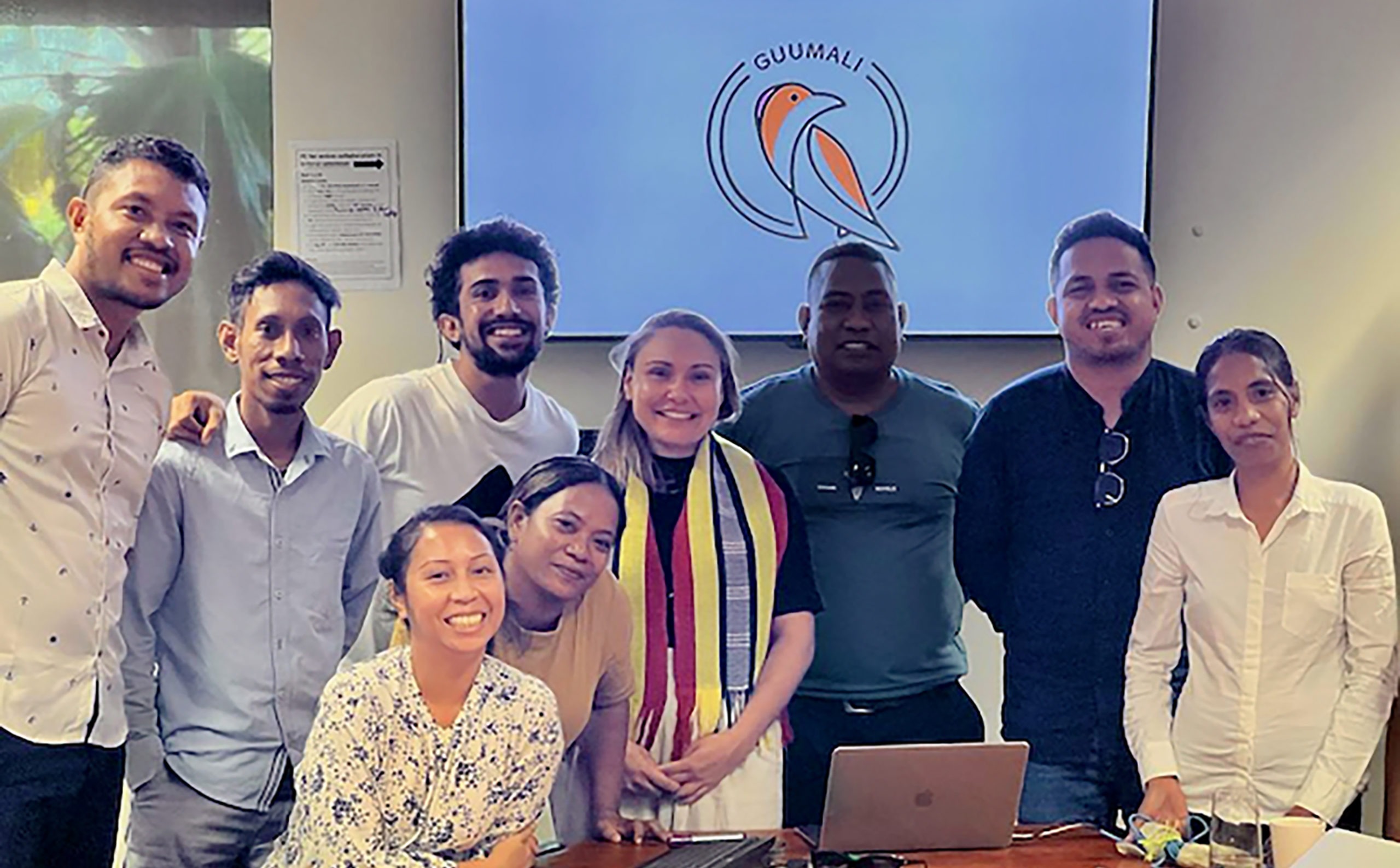
“Indigenous and recreational fishers in Australia often know the best fishing spots, know the best time to fish a spot, and know the catch history of the spot.
“What people often don’t realise is that they are doing science by making those observations. And that knowledge they have is then not captured and used to make fisheries management decisions.”
Ms House said Timor-Leste has more of a community-based approach where authorities and communities have maintained the livelihoods of small-scale fishers by empowering communities with the responsibility to monitor and protect their own fisheries.
“You know it’s too much of a top-down approach when you have fishers who don’t understand decisions made by authorities or mistrust those decisions,” she said.
“Timor-Leste authorities are well on their way on working through those issues because their communities can be empowered in local fisheries management.”
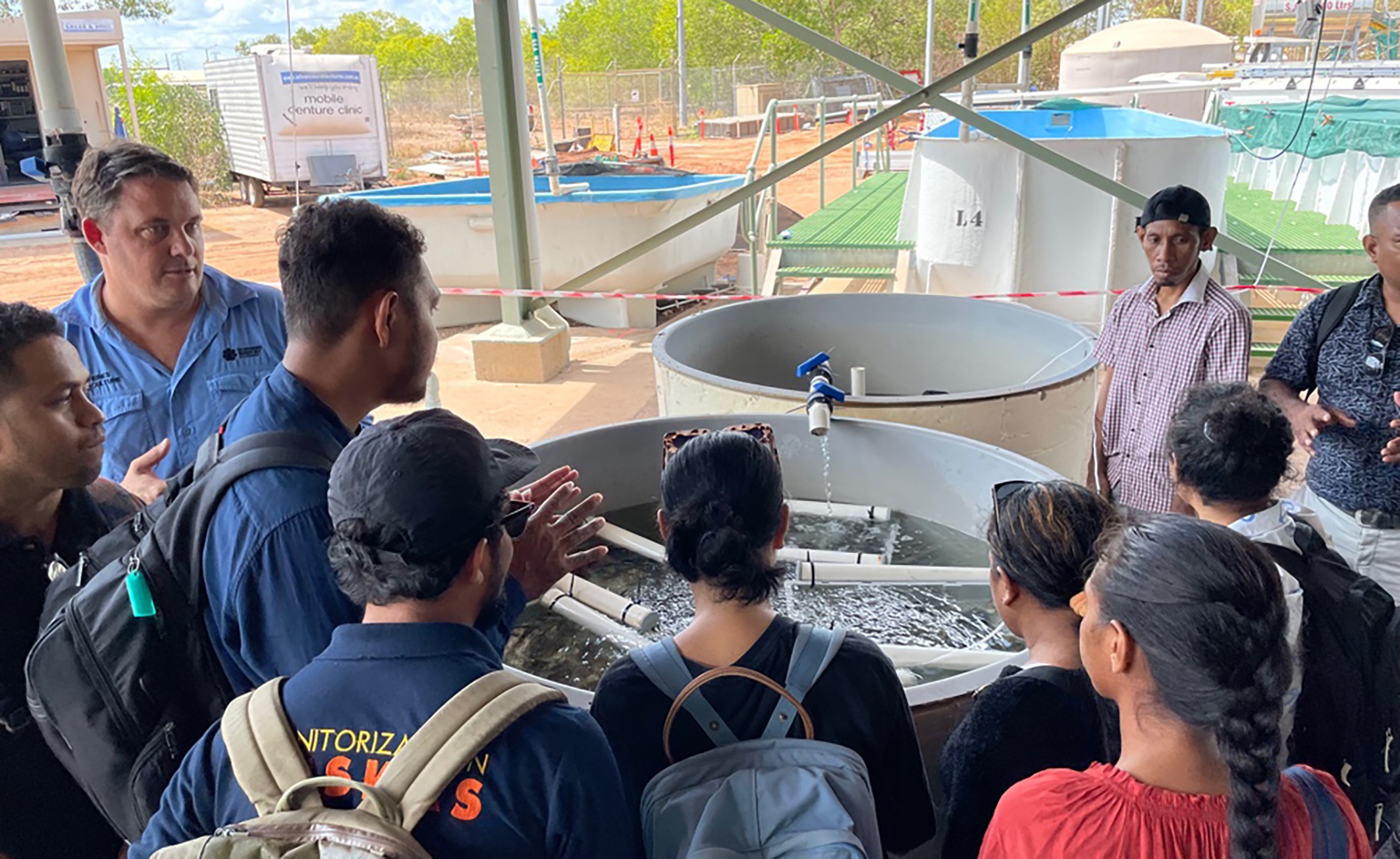
The visit from the fisheries management team from international non-government organisation, Blue Ventures, was an opportunity to exchange knowledge on community-based fisheries management practices that would benefit both the Northern Territory and Timor-Leste.
The Blue Ventures team gave a seminar about their work with coastal communities in Timor-Leste, demonstrating the value of a “Communities First” approach to marine management.
Janicia Silva de Jesus from Blue Ventures Timor-Leste said their team would benefit from the knowledge sharing and relationship building during the exchange, as well as from learning about some of the methods and technologies which researchers are using to collect ecological and social data and improve coastal livelihoods.
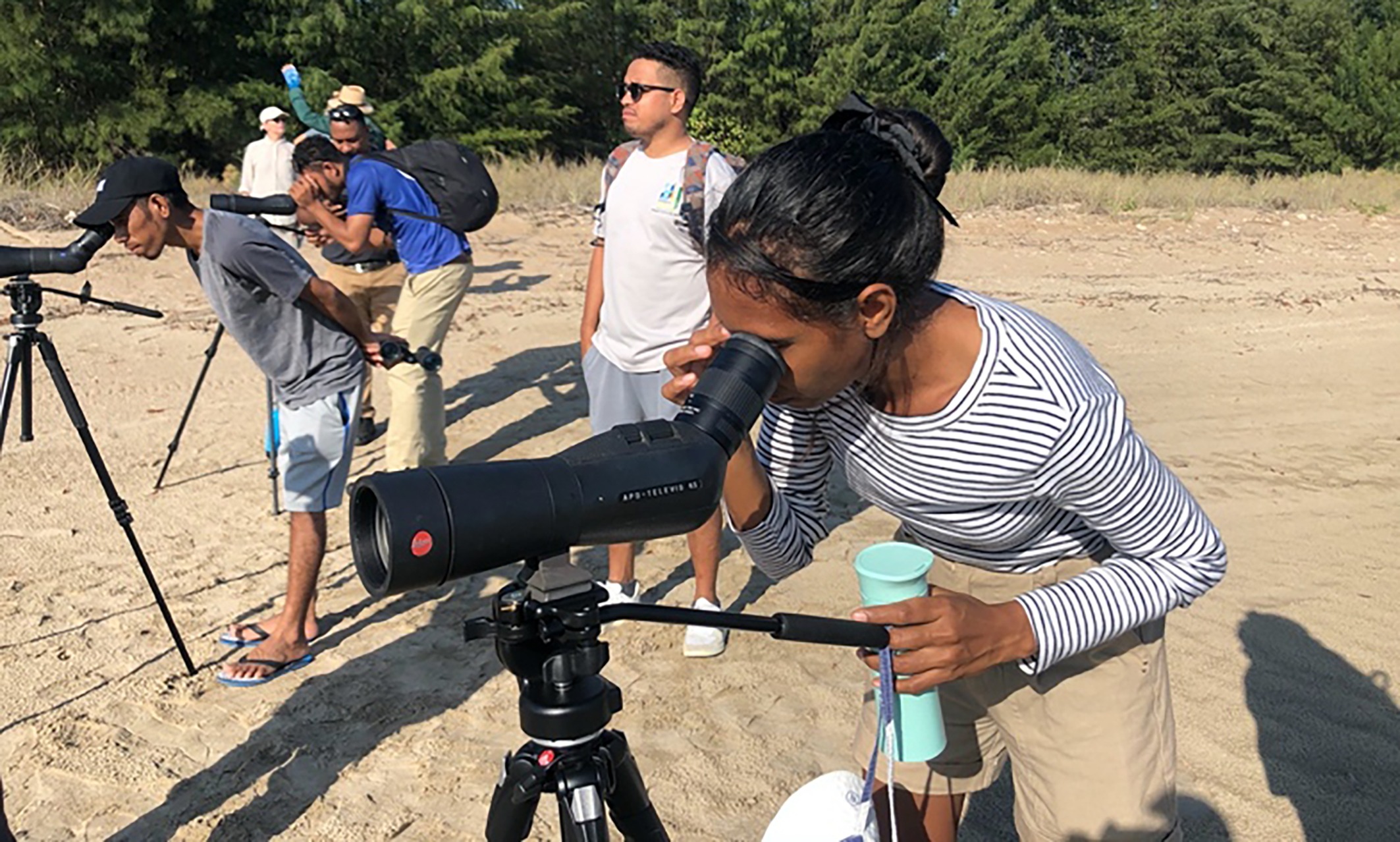
“In exchange with CDU, we shared our work on marine management, coastal livelihoods, and community-led approaches that can be used by communities and researchers to conserve marine ecosystems whilst meeting the needs of communities,” Ms Silva de Jesus said.
The knowledge exchange, supported by The Crawford Fund, was a small step in sharing the benefits of a more holistic approach to fisheries management.




